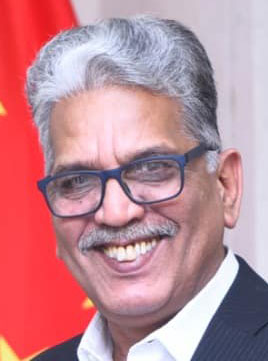The general elections are rapidly approaching – just one month to go. However, the post-election events will have a significantly greater impact on the nation’s trajectory. Troublesome tasks lie ahead for the incoming administration. The intricate dynamics of an unpredictable internal climate will limit the election winner’s capacity to govern. The most severe economic crisis the nation has ever seen, rising security threats, deteriorating state institutions, a volatile regional situation, and a significant transfer of power to the military establishment are all hallmarks of this political climate.
The government will face numerous obstacles, both from within and outside the country. The elected officials in charge will have to prioritise these issues by deciding which ones are more pressing and then develop a plan to address both. The capacity of the government to handle a critically ill economy will have the greatest impact on the future of the nation. All of Pakistan’s economic crises have their origins in poor governance, as the country’s ruling elites have avoided difficult reforms in favors of easier, less disruptive ones.
This stopgap measure that depended on deriving domestically and relying on foreign bailouts or financing has reached its limit and cannot be sustained. Anemic growth, large deficits, massive borrowing, increasing debts, and skyrocketing inflation will cage the nation unless structural problems are addressed. A small and unfair tax system, a small export base, the energy sector’s circular debt, failing public-sector companies, an excessive regulatory load, a lack of savings and investment, and so on are the underlying causes of long-term financial imbalances.
The vicious cycle of huge budget/balance-of-payments deficits and recurrent foreign exchange crises, which have required repeated IMF bailouts, can be broken by implementing a thorough plan to tackle these fundamental difficulties and find a way to sustainable growth. So, it’s necessary to have leaders who aren’t afraid to lead capable teams, who recognize the importance of fundamental reforms, and who are willing to take steps that may be difficult now but will pay off significantly later.
Reforming the tax system to make it more fair and easier to understand is the most critical. A tax-to-GDP ratio of 10% has been in place for many years. The single most critical attempt to solve the persistent budget deficit and set the economy towards sustainability is resource mobilization. This can be achieved by expanding the tax base, bringing untaxed industries into the net, assuring compliance, reforming GST, and abolishing exemptions. Building and maintaining investor trust also requires a regulatory environment that is both broad and consistent for businesses.
To pull Pakistan out of its current predicament, it is necessary to address both the urgent and the essential issues.
Addressing the immediate financial crisis is critical, but we must not lose sight of the important concerns that are as crucial to the growth and progress of our country’s economy. This translates to spending money on people. As a result of this inaction, the country is currently experiencing what the World Bank describes as a “silent, deep human capital crisis” due to its low human development rankings, worsening social indicators, and increasing poverty rates.
As a result of underinvestment, about 40% of Pakistanis are illiterate, 20% of school-aged children do not attend school, 40% of the population lives in poverty, and health indicators, such as malnutrition rates, are dismal. Only with a strong educational foundation can economies grow. Expanding coverage and enhancing education quality will necessitate a long-term strategy. However, due to Pakistan’s demographic structure and youth bulge, it can no longer be delayed. Without an increase in both the quantity and quality of educational opportunities, young people lacking in education and skills will be doomed to a future of poverty, unemployment, and despair.
For decades, population planning has been a low priority for most governments. With a population of 242 million and an annual growth rate of 2.5 percent, Pakistan is the sixth most populated nation in the world. The societal and economic effects of this are substantial. The fact that about 4 million young people enter the working-age population annually is significant, considering that kids make up 64 percent of the Under-30. This necessitates the yearly creation of more than one million new employment. Pakistan faces the triple threat of societal instability caused by its ageing population, its stagnant economy, and the pervasive gender and education imbalances.
The incoming administration should priorities reforming the state’s institutional structure. Power and the capability to implement policies are obviously constrained by the deteriorating capacity of the institutions of government. The civil service has been politicized for decades, which has weakened its authority, morale, competence, and ability to provide public services effectively while undermining quality and professionalism.
State capacity has been diminished and the quality of the civil service has declined due in large part to changes that have been postponed. This has had a negative impact on the state’s ability to educate its citizens, enforce the law, and collect taxes. Consistent with previous polls, it has also contributed to the gradual erosion of trust in government agencies. If the government is serious about reviving the economy, making sure policies are effectively implemented, and enhancing governance generally, it must prioritise institutional strengthening and reforming the civil service.
In order to keep the government’s attention on these critical issues, it must refrain from engaging in combative politics with its opponents.
In other words, there has to be an earnest desire to move on from a depressing history of pointless government-opposition conflicts that have diverted attention away from actually governing. Actually, the government should strive to implement democracy in a consensus-based manner by demonstrating tolerance and accommodating viewpoints different from its own if it wants to create a stable and predictable environment. Given that the election results could put different political parties in control of different provinces than the one at the federal level, this is especially important given the federal character of the state. Democracy, in any event, is broader than just voting. In the time between elections, it should decide the country’s governance.
A more formidable obstacle awaits




